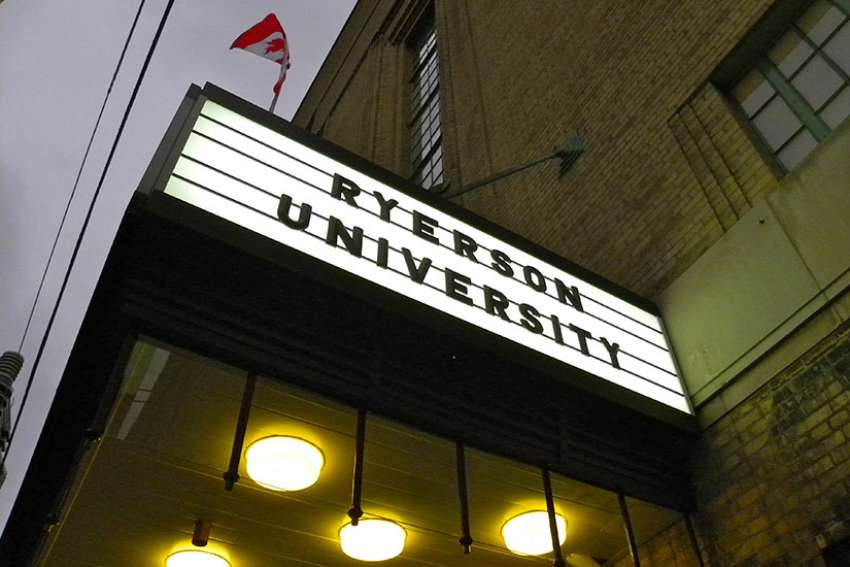Political correctness has been around a long time. Some date it to a term used in a U.S. Supreme Court decision from 1793. It entered the everyday lexicon in the 1970s and really took off a few years later by turning “Merry Christmas” into a taboo for risk of offending those not of the Christian faith. Yet, I’ve never had a Jewish, Muslim, Hindu, Sikh or even atheist person tell me they find a friendly greeting of “Merry Christmas” offensive.
There are countless other PC examples; some silly and humorous, some serious. Without doubt, it has helped shape our culture and policies over the past few decades. (An American president even got elected by endlessly trumpeting that he was the anti politically-correct candidate. So, it’s not all good news for those opposed to rampant political correctness.)
Last year, an Angus Reid poll found that more than three-quarters of Canadians agreed that political correctness has just gone too far, and yet almost as many people (70 per cent) admitted to biting their tongue at least some of the time to avoid offending others.
Which brings us to yet another example of political correctness: trying to change the name of Ryerson University, my alma mater.
“Indigenous students, student union push Ryerson University to change its name,” screams a headline in a recent edition of The Toronto Star.
Due to my ties to the university, I was more than a little interested in this story.
“The downtown Toronto university is named for Egerton Ryerson, a pioneer of public education in Ontario who is widely believed to have helped shape residential school policy through his ideas on education for Indigenous children,” states the Star article.
“Widely believed” — now there’s politically correct language if I’ve ever seen it. Broad swaths and painting with the same brush are part of the PC toolkit.
The article, to be fair, does not shy away from reporting on the backlash from those opposed to the possible name change, but it also attacks the character of Ryerson on several fronts. For example, it prints this unattributed post: “change the name of Ryerson University to a name that does not celebrate a man who supported and created the structures of colonial genocide.”
Wow. They’ve moved Ryerson, a Methodist minister, into some sort of criminal and architect of genocide.
Fortunately, The Globe and Mail on the same day ran an opinion piece from Donald Smith, a retired history professor from the University of Calgary, which offers many details of Ryerson’s life that are either ignored or not known by the folks trying to rename the university.
“As a Canadian historian of nearly half a century’s standing, I find the current controversy over Egerton Ryerson, the namesake of Ryerson University, totally baffling,” Smith begins. “I wonder how deeply his critics have probed into the past of the founder of the modern Ontario public-school system. Their portrayal of him as anti-Indigenous misrepresents the man completely.”
Ryerson started the Credit Mission, a stone’s throw from my home in Port Credit, where he learned to speak Ojibway and worked alongside the Credit Mississaugas in the fields and ate and lived with them. They liked him so much they named him “Chechalk,” meaning Bird on the Wing.
He helped many Indigenous people with their education, even sponsoring some in universities of the day. One was so grateful that he named his son Egerton.
Smith goes on to say Ryerson “supported the Credit Mississaugas’ fight for a title deed to their Credit River reserve and their efforts to build a strong economic base for their community.”
He became lifelong friends with a Mississauga chief named Kahkewaquonaby (Sacred Waving Feathers), known as Peter Jones in English, who also became a Methodist minister. Nearing the end of Jones’ life, Ryerson had Jones and his wife stay with his family for a month in Toronto while seeking the best possible medical care. Before Jones died at age 54, he asked Ryerson to give the eulogy, which he did on July 1, 1856.
Ryerson gets tarred with the residential school brush for writing in 1847 “a short report on Indian boarding schools where older male students could learn European-style agriculture,” Smith writes, adding the Truth and Reconciliation Commission of Canada unequivocally stated Ryerson was not the creator of the residential school system.
It seems in our politically-correct world it’s easy to paint Ryerson as anti-Indigenous. But the facts of history simply don’t bear that out. As Smith laments, “Back to you Ryerson Students’ Union, for further study.” Perhaps they’ll find another politically correct crusade truly worth fighting for.
(Brehl is a writer in Port Credit, Ont., and cane be reached at bob@abc2.ca, or @bbrehl on Twitter.)


